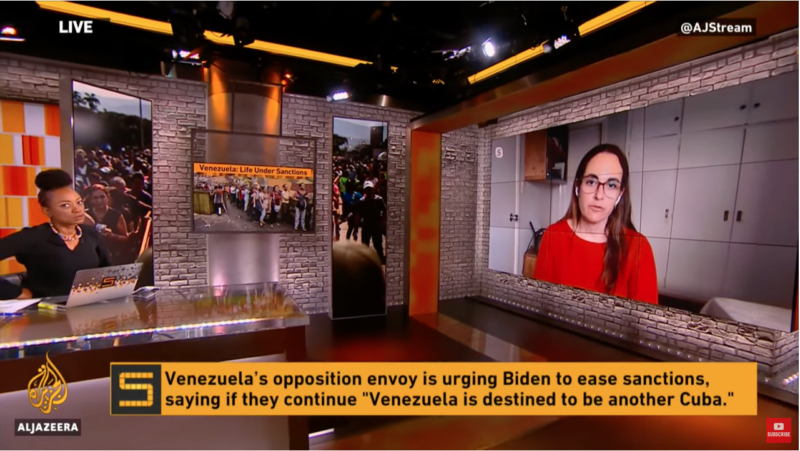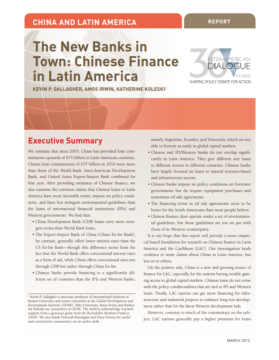IACHR Report on Citizen Security & Human Rights
Citizen security remains a top concern for most Latin American governments as crime and violence spiral out of control and cripple political and economic institutions in the region.
For more than 15 years, the United States has been imposing a wide variety of economic sanctions against Venezuela, claiming the South American country has aided in drug trafficking, sponsored terrorism, and committed human rights abuses. Tamara Taraciuk Broner, Director of Peter D. Bell Rule of Law Program at the Inter-American Dialogue spoke with Al Jazeera about this important issue.
“There are different types of sanctions. Those that are committed against specific government officials have no impact whatsoever on the humanitarian situation, but I believe we’re talking here about the economic sanctions that have an impact on the oil sector. What we have seen is that there’s a problem of overcompliance with sanctions imposed by the US government that have made it harder for humanitarian aid to reach the country. However, I think it’s important to highlight that the humanitarian situation of Venezuela was pretty dire before the imposition of sanctions. (…) Official data published by the Health Ministry, published by Venezuelan authorities in 2017 showed that the previous year, maternal mortality increased by 65 percent and infant mortality had increased by 35 percent. And these statistics, which had not been made public for a long time, were made public by a health minister that was quickly taken out of office. We need to put the impact of US sanctions in context in a situation that had been dire before, and continues to be dire, in part due to overcompliance with US sanctions."
"I don’t think sanctions need to be, or should be, an end in an of themselves. They should be a tool to try to improve conditions in the country. Obviously if they have an impact on the humanitarian situation and on the people, they have an effect that no one is going to support. However, the imposition and lifting of sanctions can be an important tool to promote a transition to democracy, together with other tools, including, for example, international accountability for grave human rights violations that have been committed in Venezuela, which amount to crimes against humanity."
"Things are not black and white. There are different aspects that impact economic conditions. … One that we haven’t mentioned is the track record of mismanagement by Venezuelan authorities ... Before the sanctions, when Venezuelan authorities did have money that (came) from selling oil, they didn’t necessarily use it for the good of the people. So, there’s actually no guarantee that this money would’ve been funneled to actually support the humanitarian situation. An additional point that I think is critical is that Venezuelan authorities don’t give concessions for free, and that there needs to be leverage, and generating incentives for that negotiation (…) between the opposition and government to actually happen, to get them to sit back at the negotiating table, to get them to agree to specific measures to help the people and to transition to democracy, and then eventually to implement those agreements."
Citizen security remains a top concern for most Latin American governments as crime and violence spiral out of control and cripple political and economic institutions in the region.
Hugo Chavez, the Venezuelan president, has clearly been enticed by the Libyan drama, where his longtime friend and ally, Muammar al-Qaddafi, is under siege from rebel forces.
Estimates of the volume, composition, and characteristics of Chinese lending to the region since 2005.
 Al Jazeera
Al Jazeera
